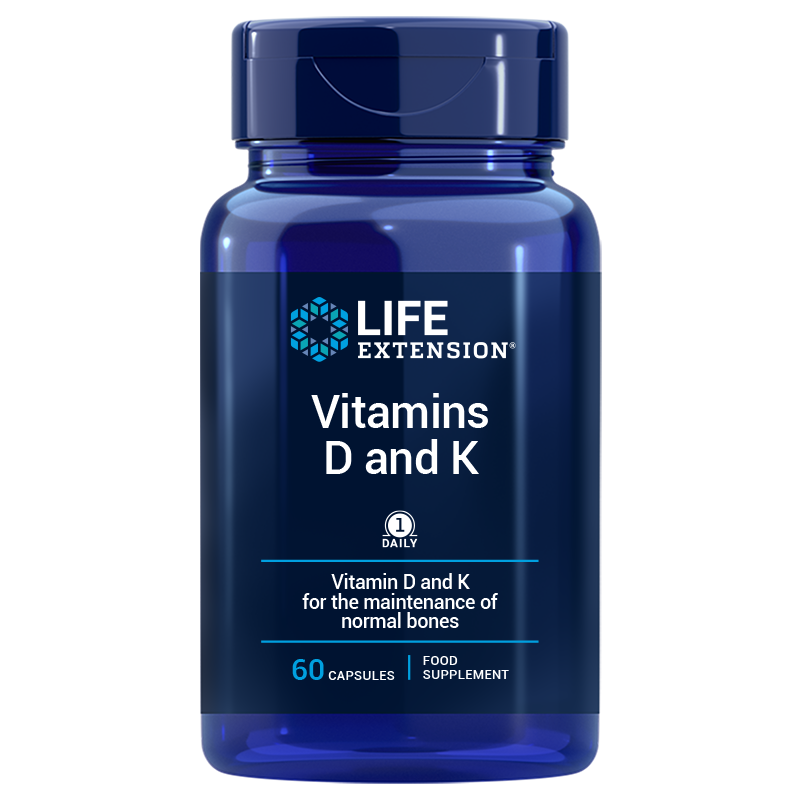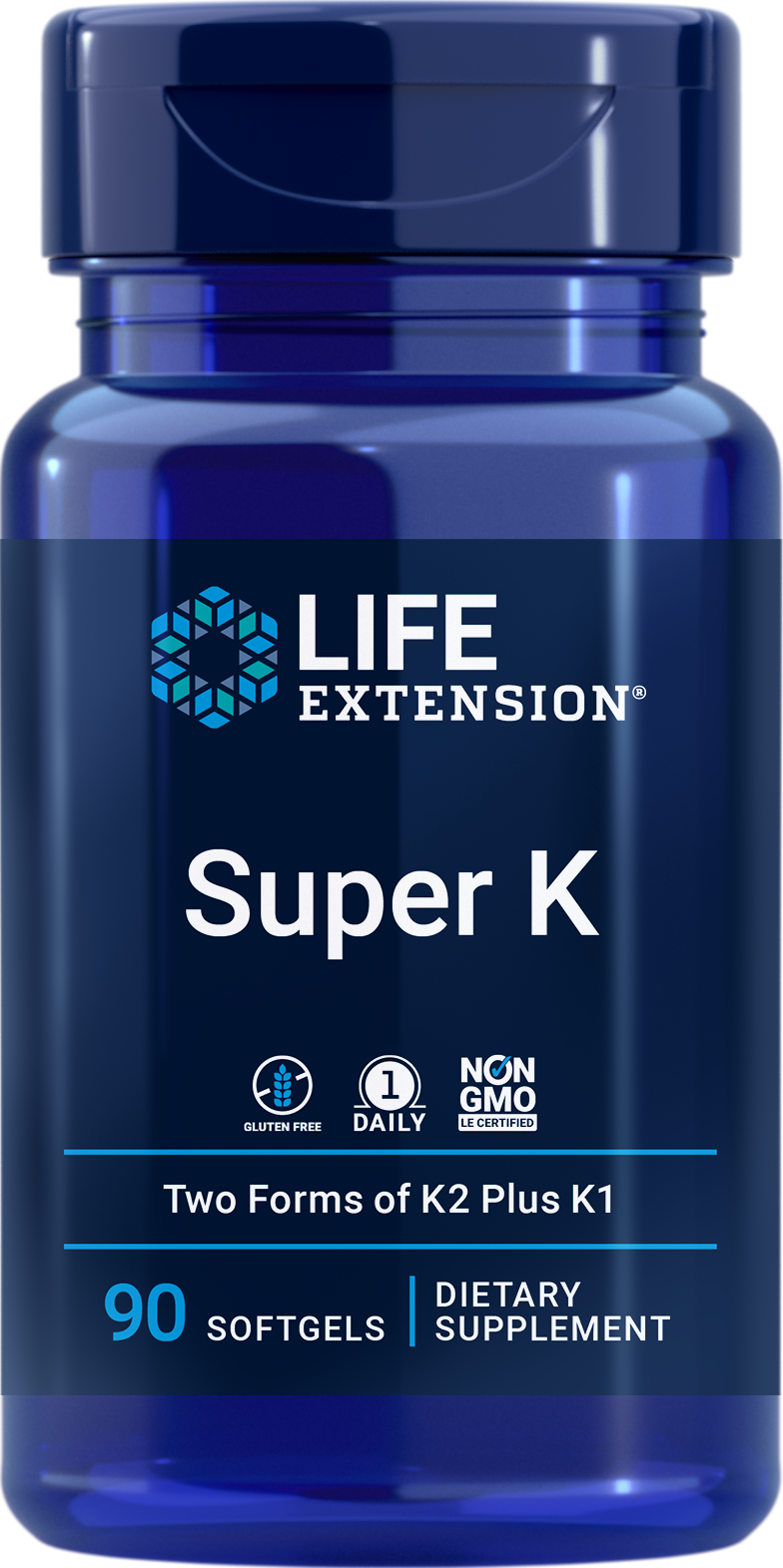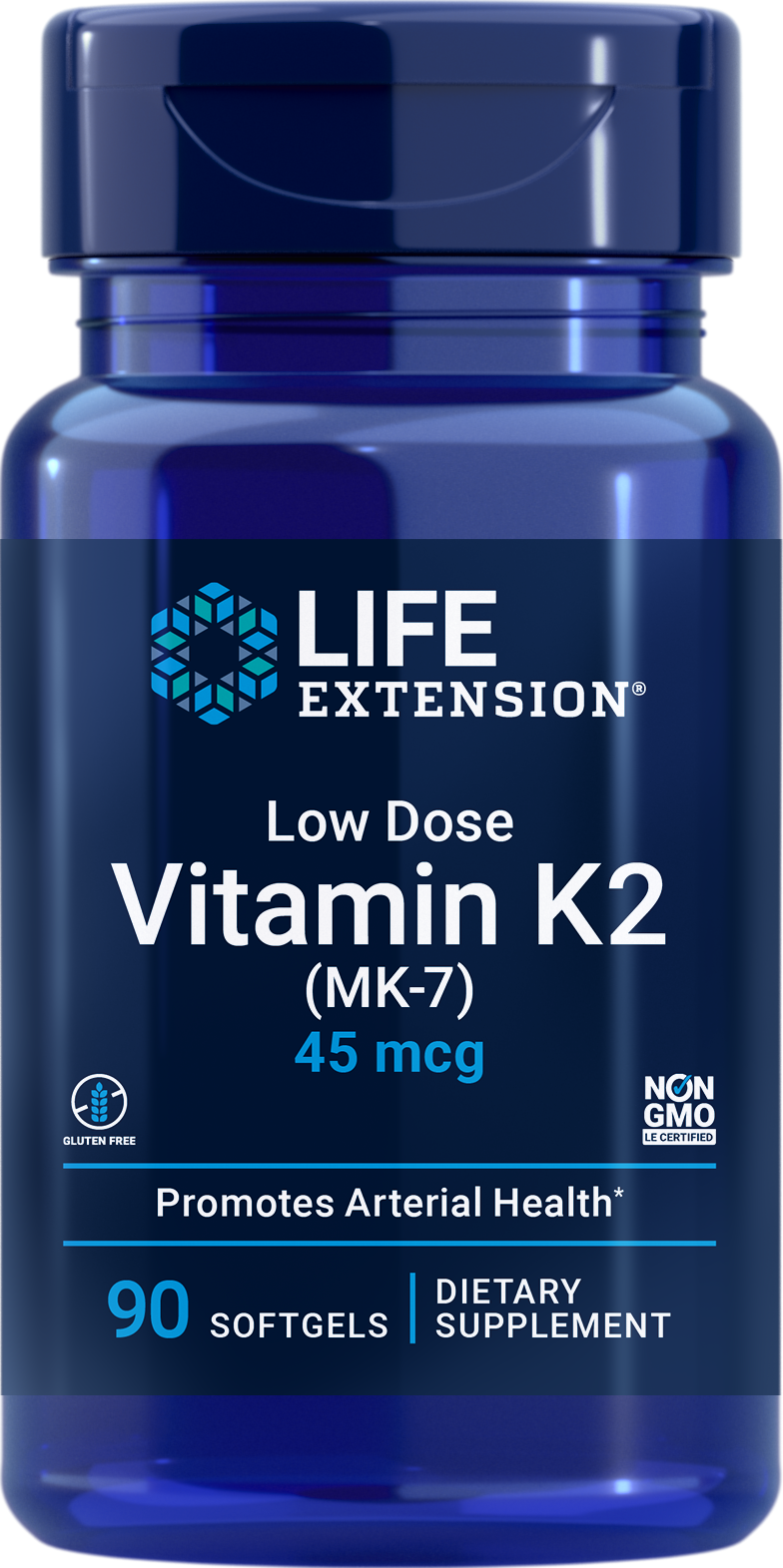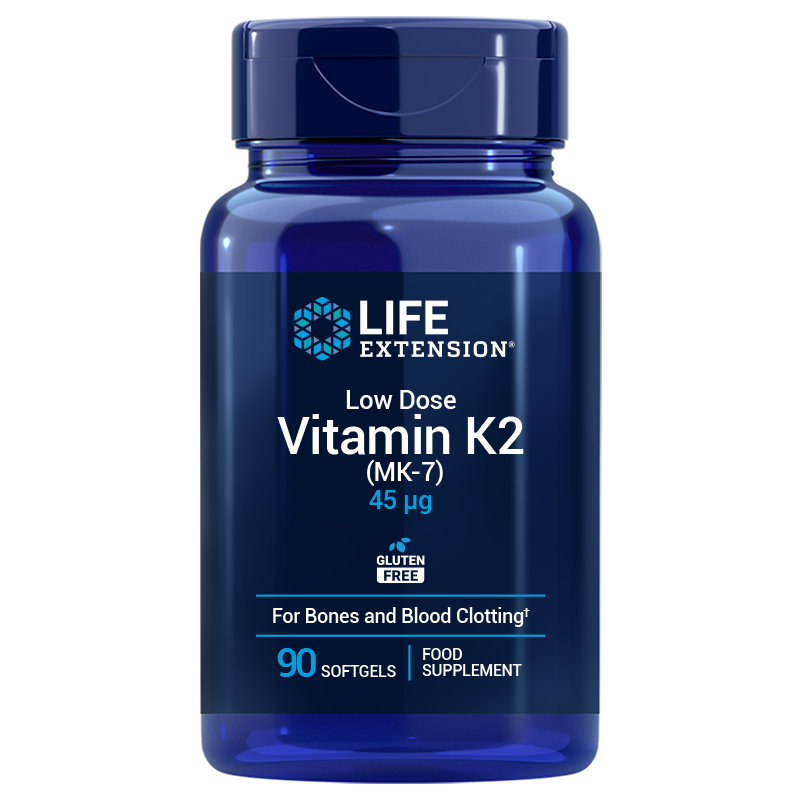
Vitamin K
There’s more than just one kind of vitamin K!
Vitamin K refers to a group of fat-soluble vitamins that helps maintain healthy bone density, encourage arterial health and support overall heart health. Each kind of vitamin K helps support our health in different ways.
Vitamin K benefits
Studies have shown that vitamin K can help:
- Strengthen bones and reduce fracture risk
- Lower risk of developing diabetes
- Promote brain health
- Reduce inflammation
Vitamin K foods
Vitiman K1 is present in leafy green vegetables. Vitamin K2 is present in the form of MK-4 ( menaquinone-4). It is found mainly in dairy foods like butter, milk, and cheese, and can also be formed by conversion of dietary vitamin K1 (phylloquinone).
MK-7 is primarily present in fermented foods, such as some cheeses, kefir (fermented milk), sauerkraut, and natto (fermented soy). MK-7 (menaquinone-7) can also be produced by bacteria in the intestinal tract.
Vitamin K2 can strengthen bone quality, and this may reduce the risk of fractures and hospitalizations. Vitamin K2 also been shown to protect against cardiovascular disease. It activates matrix Gla protein, which is a vitamin K-dependent protein that helps inhibit calcium from entering soft tissues like arterial walls and forming calcified plaques. In turn, this improves overall heart health.
Vitamin K deficiency
Low levels of vitamin K in the blood and in the diet are associated with low bone mineral density in women.
Vitamin K
Out of stock








